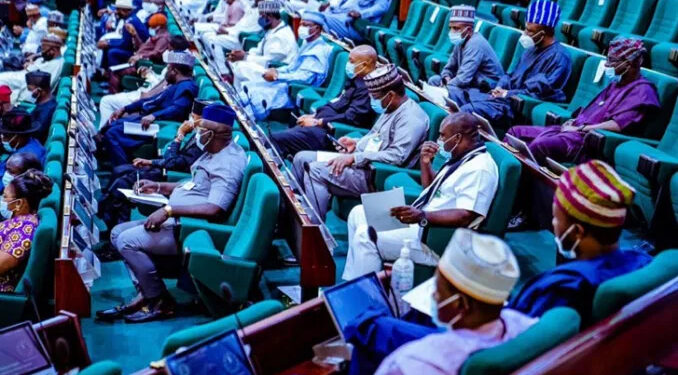By John Ikani
Nigeria’s House of Representatives on Tuesday asked Federal universities to immediately suspend the implementation of the recent fee hike.
The lawmakers expressed concern that the increase in fees could lead to students dropping out of school, especially in light of the country’s economic woes.
The motion to suspend the fee hike was brought by Hon. Aliyu Sani Madaki, who cited the poor funding of tertiary education and rising inflation in the country as reasons for the increase.
Madaki alleged that federal universities across the country had increased their tuition fees by 100% to 200%, while hostel fees had been increased by 50% to 100%.
He listed some of the universities that had increased their fees to include Bayero University, Kano, the University of Nigeria, Nsukka; the University of Uyo; University of Maiduguri; Michael Okpara, University of Agriculture, Umudike; Federal University, Dutse, among others.
Madaki expressed concern that the hike in fees would further exacerbate the already difficult financial situation for many students and their families.
He said that the increase could force some students to defer their studies or even drop out altogether.
Madaki also warned that the hike could lead to an increase in insecurity, as frustrated students might turn to violence.
The House of Representatives unanimously adopted the motion to suspend the fee hike.
The House also called on the Federal Government to take immediate steps to adequately fund the education sector.
The lawmakers said that the government should increase budgetary provisions to ensure that Nigerian students have access to quality and affordable basic and senior secondary education.
The House also resolved to investigate the increase of fees by all Federal Universities and the hike in school fees for students of Federal Government Colleges across the Country with a view to finding lasting solutions to the challenges in the education sector.
Analysis
The House of Representatives decision to suspend the fee hike is a positive step, as it will help to ensure that students are not priced out of education.
However, the government must also take steps to adequately fund the education sector, so that universities can continue to provide quality education at an affordable price.
The fee hike was likely implemented in response to the poor funding of tertiary education in Nigeria. However, the increase in fees is likely to have a negative impact on access to education, especially for students from low-income families.
The lawmakers’ resolution to investigate the fee hike is a welcome development, as it will help to shed light on the reasons for the increase and its potential consequences.
The government should take the findings of the investigation into account when making decisions about the future of education funding in Nigeria.
Overall, the House of Representatives decision to suspend the fee hike is a positive step, but the government must also take steps to address the underlying challenges facing the education sector.



































